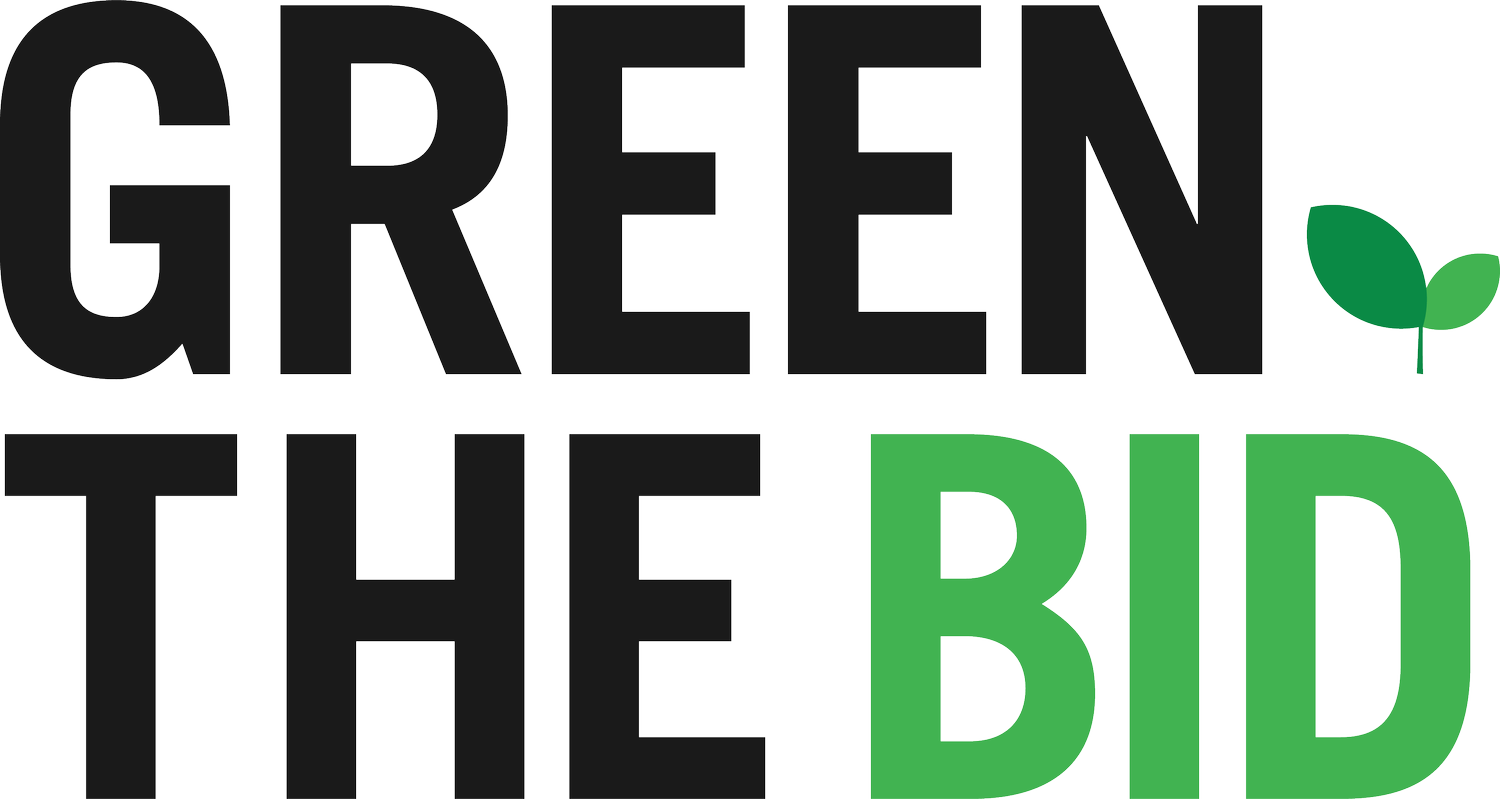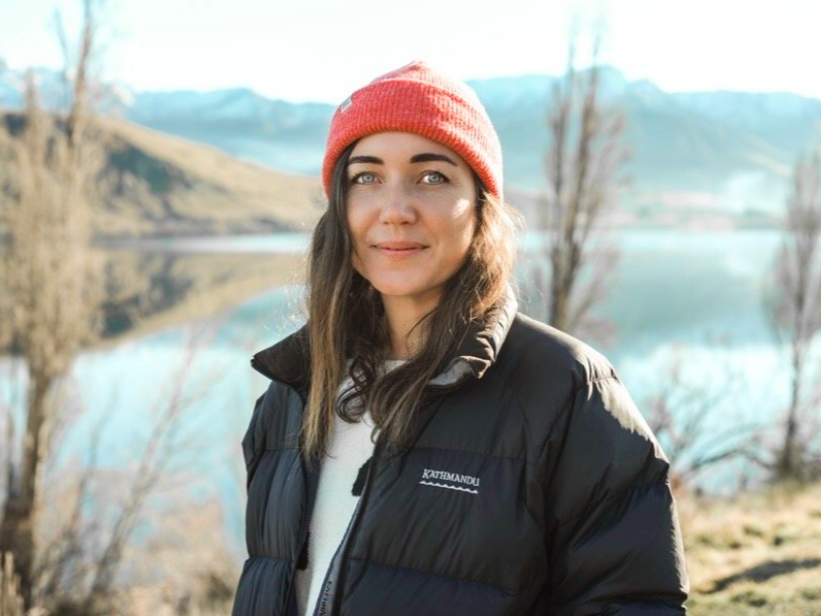Celebrating Green Crew Heroes! Claire Thompson, Head of Production at Finch in Australia
Green The Bid Crew Heroes is a series that highlights individuals who bring sustainable practices to any area of the production process, and seek to inspire others to do the same. Production can’t happen without all crew-members (both on set and off), and the same is true of their support of Green The Bid.
This week Green The Bid’s Jessie Nagel spoke with Claire Thompson, Head of Production at FINCH in Australia, about growing up with a love of Maori culture, her appreciation of FINCH’s other environmental work with The Lion’s Share project, and the importance of taking climate action as part of a global community.
J.N. What or who inspired you to become interested in the environment?
C.T. Growing up in New Zealand, I was always interested in the landscape and our Indigenous people. Born from a respect for the Maori culture, I learnt about myths and legends that focus on the sacred land, and developed an appreciation of our native birds and trees.
We learn a lot about whakapapa (genealogy) through storytelling, which I think instils a lot of pride in what it means to be kiwi.
I was obsessed with animals from a young age -- like lots of Flipper-era children in the early ‘90s, I wanted to be a marine biologist. I was never allowed a dog or horse, but was constantly taking on stray cats, guinea pigs, and rabbits, as well as eels, fish and tadpoles from the local river, and an Indian Ringneck Parakeet called Skip that turned up at home over the years.
J.N. How does where you are based influence your environmental perspective?
C.T. I currently live in Sydney, which is well-known for its beauty -- we are lucky to live close to some of the most stunning beaches and national parks in the world.
Over these last couple of years, the weather’s influence on our lifestyle has been a huge turning point. With the devastating fires and floods, the effect on people’s livelihoods and mental health -- as well as the destruction of huge swathes of the natural world -- has been incomprehensible. Australia’s incessant investing into fossil fuels is a hard one to stomach in this climate -- excuse the pun.
J.N. You’ve been on the road to transitioning how FINCH does productions for nearly two years now. What kick-started this process for you and your colleagues?
C.T. FINCH is an inspiring company to work at. It’s full of do-gooders much smarter than me, and there’s a culture of encouragement when it comes to projects that challenge.
We have Creatable, a subscription-based teacher development app. Recently, Creatable has created a course based around making more sustainable food preparation fires in Burundi, the world’s poorest country. That directly impacts the carbon emissions and smoke inhalation, saving lives.
We also have The Lion’s Share, an initiative designed to bring together the worlds of conservation and advertising by calling on brands to donate part of their campaign spend to protect the world’s most at-risk animal populations.
Pippa Bhatt from Madam introduced us to Gabi Kay at Green The Bid early on, which really kickstarted it all. That, and jumping into the HOP role at FINCH, gave me the focus to practice what we preach. Looking at NZ for inspiration, we began the process of overhauling the way we work both in the office and in production, and on set.
It’s now all come full circle, and we can work on taking the NZ practices even further.
J.N. Can you describe some of the key areas where you’ve made change and what you’ve learned along the way?
C.T.I started with my own office, using GTB templates and resources, and tailoring them to fit our needs. It was about bringing as many people on board as possible, giving them ownership, and letting them see the pay-off.
Tackling the waste management methods on set is ongoing. But we had a lot of uptake early on across Unit Managers, Catering and Art Departments. I was pleasantly surprised that, when given the right resources, people were happy to jump on board -- even getting their hands dirty.
Removing all plastic water bottles off sets is something we hope to completely shift to very soon. We are still measuring our carbon hot spots, and I’m starting to see where we are lagging behind. So our next steps will involve research into ways to solve those problem areas. There’s so much more to do.
I’ve learnt that change requires a movement. It’s very hard to make change if there’s only one voice. This whole process has brought me together with likeminded people, and has given me a lot of hope.
J.N. How are you applying your findings and experience to the Australian production industry as at large?
C.T. Getting as many other crew members and production companies involved as possible is our big goal. We’re setting up meetings with GTB for everyone to engage and make impact in higher numbers. These practices need to become part of the vernacular of the way we work, and so getting agencies and clients on board is a big one.
We’ve started a sub-committee for the Commercial Producers Council to engage in meetings regularly for our industry. There’s a few other groups forming and people out there with a lot of good intentions, so watch this space.
J.N. Understanding that there are no sustainability consultants in Australia, how do you recommend companies approach this in house?
C.T. I think the easiest way is to tackle each job as it comes. Set principles for your company and stick to them. Talk to crew and suppliers along the way. Increasingly, we’re only working with sustainable companies, and while this can take more time in pre-production, it’s the easiest way to move forward and learn.
Along the way, you’ll find other companies who are willing to hold the line with you, and you can halve the number of conversations you have.
Finally educate all your staff -- freelancers and full-time employees. Having conversations on set is vital. As a general industry of freethinkers and resourceful individuals, we’ve got some powerful minds to impact change.
J.N. What does it mean to FINCH to be part of Green The Bid?
C.T. Australia & NZ are isolated geographically, and it’s important that we look externally for innovation and knowledge. Seeing the passion and drive of the whole GTB team has kept me challenging myself. I find having a whole army of people around the world working towards the same goal so inspiring.
It’s also a helpful name drop to substantiate a lot of what we are trying to do here, with international clients who have international pressures.
J.N. Do you have a hero - in sustainability or otherwise?
C.T. I’m always comparing myself to all the people who are achieving so much in this field.
They’re the ones who are inspiring people like me to do our little bit, while they kick the real goals – and they shouldn’t be underestimated.
J.N. In the face of the climate crisis, how do you stay hopeful and inspired?
C.T. I feel hopeful that the current generation will be smarter than the last.
----- Are you a crew hero or do you know one? We want to hear from you!


